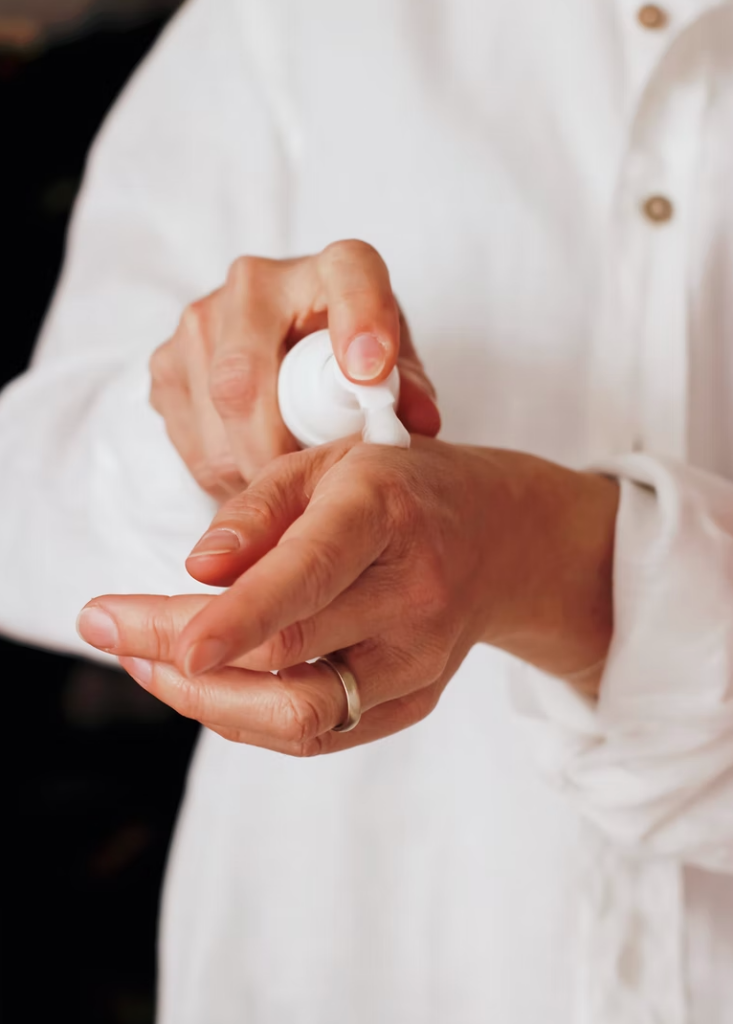When someone thinks of skincare, it’s usually entirely in the vein of beauty. Healthy skin is beautiful, true, but good skin is important for more than how it looks. Your skin is a complex organ in and of itself, which means that it plays a vital part in your overall health.
This is why skincare is so important for you and your whole family, no matter their age, as well as how you can take care of them.
Your Skin and Your Health
It’s easy to take your skin for granted. You always know it’s there, and you might try to avoid damaging it too much, but you might not pay all that much attention to it. True, as you get older, you may look into moisturizers and wrinkle creams, but younger people should also take care of their skin.
Your skin is your body’s first defense against germs, elements, and damage. It’s what separates the rest of your body from the outside world. It also regulates your body temperature, preventing you from overheating or getting too cold.
Finally, your skin is full of sensory nerves. While it protects you from the outside world, it also connects you to it. It communicates feelings of cold, heat, touch, pain, and other sensations that help you to navigate life and keep yourself healthy.
As an organ, your skin can also reflect your general health. If you have a fever, your skin will be cold to the touch. Some illnesses affect the skin as well as the rest of your body, especially autoimmune conditions. This means that your skin may be one of the first indicators that something is wrong.
What to Do If You Have a Skin Condition
With this in mind, you may have noticed that you or your children have developed a skin condition. It may be something as simple as dry skin, acne, or perhaps something more concerning.
Some skin conditions can be treated at home. They may be a sign that you need to maintain your skin with a little more care, or perhaps they’re related to hormones. For example, while acne is typically associated with teenagers, it’s common for women to develop spots during their menstrual cycle. Dry skin can be treated with a moisturizing routine, and acne may be controlled by over-the-counter medications.
However, sometimes your skin condition may be cause for concern. In this case, it’s best to go to the doctor. It’s possible that a skin condition is just that, a problem with your skin. Your doctor can answer questions and offer treatments to help you cope with them.
Or, your skin condition may be a sign of something concerning. Some skin disorders, like hives, are a sign that you’ve been exposed to an allergen. Finding the cause of a reaction like this is important, as allergic reactions can quickly become very serious.
Psoriasis is an autoimmune condition that primarily affects the skin, but can also cause problems with your joints. Lupus is another autoimmune condition that causes a rash, as well as more concerning symptoms. Even some cancers present on the skin first.
One common skin condition is eczema. Eczema presents as itchy, extremely dry skin. Severe eczema is unsightly and can easily become infected. This article entitled ‘Is Eczema Contagious? Everything You Need To Know’ will provide you with more information about this condition.
Tips to Improve General Skin Health
Paying attention to your general skin health can protect you from developing skin conditions, help you to identify health problems, and can help you to look better. Healthy, happy skin is always a good thing. With this in mind, here are some tips to keep your skin healthy.
Wear Sunscreen
The sun is your skin’s ally and enemy. The sun is important because it helps your body to produce vitamin D, which is vital for improved mood and good bone health. Without enough vitamin D, you may develop mood disorders and potentially conditions like rickets.
However, the sun can be dangerous to your skin. UV radiation has been linked to skin cancer. Not only that, but sunburn damages your skin, eventually causing dry skin and wrinkles as time goes on, even if you avoid more severe conditions like cancer. With this in mind, keep some sunscreen handy at all times.
Factor 30 or more is best to make sure that your skin is protected. If you have a sunscreen allergy, then use mineral-based sunscreen. This physically blocks the sun from touching your skin and is usually a great moisturizer as well.
Eat Right
Good food is vital for general health, but it can also impact your skin. The best foods for healthy skin include healthy fats, such as those found in fish or avocados, which keep your skin supple and moisturized. Beta carotene is another important nutrient for good skin health, and it can be found in sweet potatoes, carrots, beets, and some other vegetables.
Vitamin C is a fantastic nutrient for your general wellbeing, but it also affects your skin. Studies have found that a lot of vitamin C can reduce the risk of wrinkled and dried skin as you age. It’s used to create collagen and has antioxidant properties.
Finally, cocoa has been shown to improve your skin health. That’s right, eating chocolate is good for your skin, although dark chocolate is best due to its higher cocoa content.
Clean and Moisturized
If you have dry skin, then you’re likely well aware of the importance of moisturizing your skin. However, everyone will benefit from a regular moisturizing routine, as it prevents dry skin from forming and keeps it supple and healthy.
As well as this, clean skin is healthy skin. This doesn’t mean that you should scour your skin with scalding hot showers or baths three times a day. The natural oils in your skin are there for a reason. But regular, gentle washing is always beneficial for you and your family.
P.S. This post contains affiliate links.


